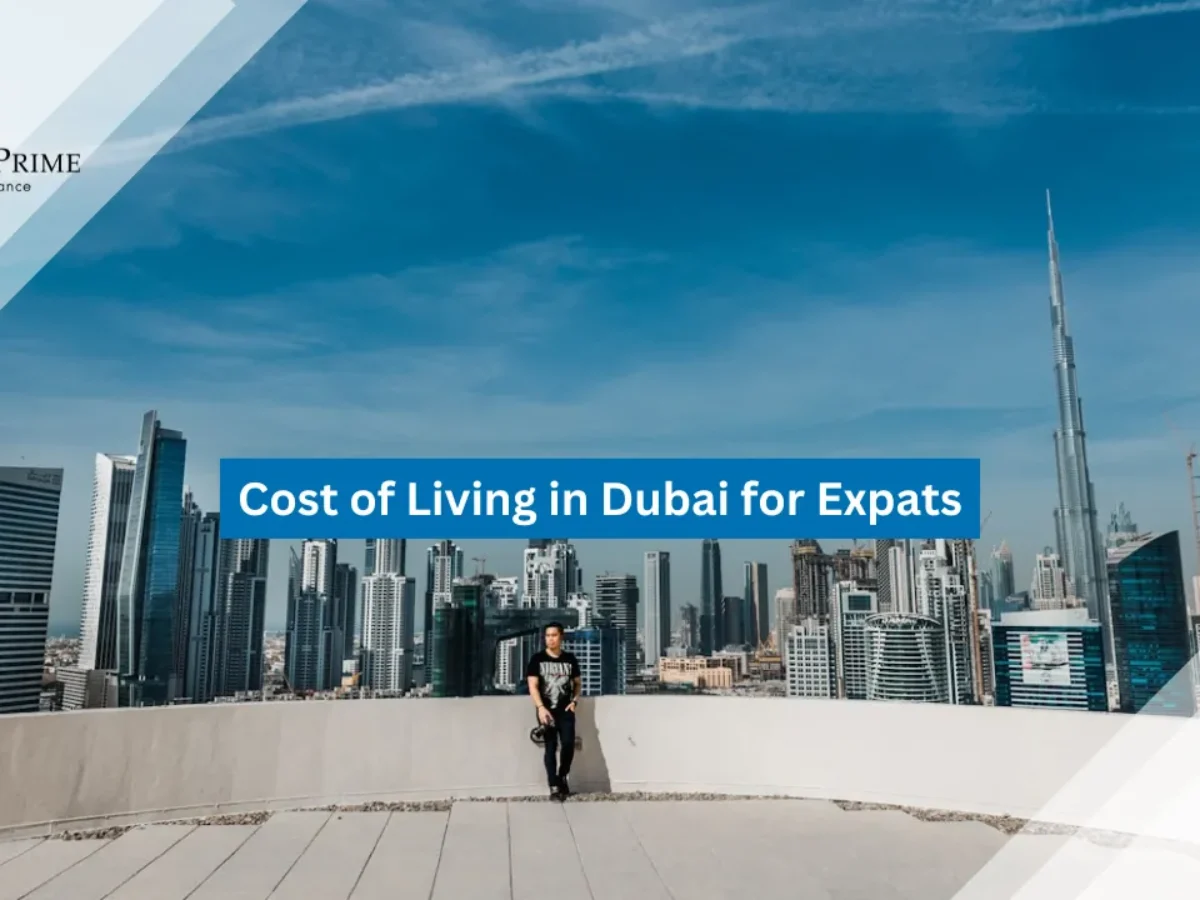
Imagine settling into a sleek apartment overlooking Dubai Marina’s shimmering waters or a luxurious villa on Palm Jumeirah, knowing your investment is growing in a city that welcomes expats with open arms and a tax-friendly environment. In 2025, Dubai’s real estate market remains a haven for expatriates, offering 100% freehold ownership, a stable dirham pegged to the U.S. dollar, and tax perks that outshine global hubs like London or New York, where taxes can erode 15-40% of profits.
With 58% of buyers from countries like the UK, India, and Russia driving 94,000 property transactions in the first half of 2025, Dubai’s 4-6% rental yields and 8-12% price appreciation surpass London (2-4%) or New York (3-4%).
Properties over $545,000 qualify for a 10-year Golden Visa, while smaller units offer 2-year residency perks. This guide explores the taxes, fees, and legal tips for expats investing in Dubai’s real estate, spotlighting projects like Dubai Marina Coastal Lofts and Palm Jumeirah Ocean Villas, to help you navigate this vibrant market with confidence.
Dubai’s real estate market, spanning iconic areas like Dubai Marina, Palm Jumeirah, Bluewaters Island, and Downtown Dubai, is a magnet for expats. Located 15-30 minutes from Dubai International Airport via Sheikh Zayed Road, these areas boast low vacancy rates (2-3% vs. 7-10% globally) and strong demand from 25 million annual tourists and a 5% population surge. A $2 million property yielding 5% ($100,000 annually) is tax-free for individual landlords, versus $55,000-$70,000 elsewhere after income taxes.
Zero capital gains tax saves $80,000-$112,000 on a $400,000 profit, and no annual property taxes save $20,000-$40,000 yearly, unlike New York (1-2%) or London (council tax up to 2%). Residential purchases dodge 5% VAT ($100,000), and the 9% corporate tax spares individual landlords. Free zone companies save $1,000-$30,000 annually, and small business relief waives corporate tax for revenues under $816,000 until December 31, 2026. For expats, Dubai feels like a welcoming, tax-smart sanctuary for building wealth.
The tax-free perks and vibrant lifestyle make Dubai feel like home for expats.
Expats renting out properties in Dubai pay no personal income tax, unlike the U.S. (up to 37%) or UK (up to 45%). A $1.2 million Dubai Marina Coastal Loft yielding $48,000-$72,000 annually keeps every dirham, versus $26,400-$43,200 elsewhere. A $4 million Palm Jumeirah Ocean Villa yielding $160,000-$240,000 saves $88,000-$144,000. Long-term leases require Ejari registration ($54-$136 annually), while short-term rentals, boosting yields by 10-20%, need Department of Tourism and Commerce Marketing (DTCM) registration ($408-$816). This tax-free rental income makes Dubai a dream for expat landlords seeking passive income.
Tax-free rent feels like a monthly gift that boosts your financial freedom.
Dubai’s zero capital gains tax is a major draw for expat investors. Selling a $1.2 million Dubai Marina Coastal Loft for $1.5 million after 25% appreciation yields a $300,000 tax-free profit, saving $60,000-$84,000 compared to London or New York.
A $4 million Palm Jumeirah Ocean Villa sold for $5 million yields a $1 million tax-free profit, saving $200,000-$280,000. This benefit, available across all freehold areas, allows expats to reinvest profits fully, making Dubai a powerhouse for long-term wealth growth.
Keeping every dirham of your profit feels like a financial triumph.

Dubai imposes no annual property taxes, unlike New York (1-2%) or London (council tax up to 2%). For a $1.2 million Dubai Marina Coastal Loft, expats save $12,000-$24,000 yearly, while a $4 million Palm Jumeirah Ocean Villa saves $40,000-$80,000. Maintenance fees ($5,000-$25,000 annually) and a 5% municipality fee on rentals ($2,400-$12,000) are the main ongoing costs. This tax-free advantage lets expats channel savings into investments or lifestyle upgrades.
Saving thousands yearly feels like a weight lifted off your shoulders.
Residential purchases are exempt from 5% VAT, unlike commercial properties. Buying a $2 million Bluewaters Azure Residence saves $100,000, compared to the UK’s stamp duty (up to 12%, or $240,000). Off-plan purchases may incur 5% VAT on developer fees ($20,000-$80,000), recoverable via Federal Tax Authority (FTA) registration ($500-$1,000).
Short-term rental operators must register for VAT if annual revenue exceeds $102,041, charging 5% on bookings but claiming input tax credits on expenses like utilities or DTCM fees. This exemption lowers the entry cost for expats across Dubai’s freehold zones.
The VAT exemption feels like a warm welcome to property ownership.
Buying a $2 million property incurs a 4% Dubai Land Department (DLD) fee ($80,000), 2% broker fee ($40,000), and a 10% deposit ($200,000). Flexible payment plans (50/50 or 20/50/30) spread costs, with 50-70% paid during construction. Annual maintenance fees range from $5,000-$25,000, and landlords pay a 5% municipality fee ($2,400-$12,000).
Short-term rentals require DTCM registration ($408-$816), while long-term leases need Ejari registration ($54-$136). Off-plan purchases may incur 5% VAT ($20,000-$80,000), recoverable via FTA registration. Gift transfers to shareholders reduce DLD fees to 0.125% ($2,500 for a $2 million property), saving $77,500. These costs, while present, are modest compared to global markets.
The fees feel like a small step toward a tax-free, high-return dream.
Dubai’s freehold ownership allows expats to fully own, sell, and lease properties without a local sponsor, unlike leasehold markets where ownership reverts after a set period. Areas like Dubai Marina, Palm Jumeirah, and Downtown Dubai offer 100% freehold rights, registered with the DLD for legal security. A $2 million Bluewaters Azure Residence or a $4 million Palm Jumeirah Ocean Villa is fully owned, with no restrictions on resale or inheritance. Expats should verify title deeds via the DLD portal and ensure developers use escrow accounts under the 2025 Oqood system for off-plan purchases to avoid fraud.
Full ownership feels like a key to unlocking Dubai’s wealth potential.
Properties valued over $545,000 qualify for a 10-year Golden Visa, granting residency, business setup, and family sponsorship without a local sponsor. A $3 million Palm Jumeirah Ocean Villa secures a 10-year visa, while a $816,750 Dubai Marina Coastal Loft qualifies for a 2-year visa. The process involves a property purchase agreement, passport copy, and DLD registration, with fees of $1,089-$2,724. Expats must renew visas on time to avoid fines up to $2,724. The Golden Visa enhances Dubai’s appeal for expats seeking long-term stability.
The Golden Visa feels like a gateway to a secure, prosperous future.
Expats managing multiple properties can set up a Qualified Free Zone Person (QFZP) company in free zones like DMCC or Dubai Silicon Oasis, saving $12,240-$61,200 annually on $122,400-$612,000 in rental income. Setup costs are $2,000-$5,000, with annual fees of $1,000-$3,000. QFZPs enjoy 0% corporate tax if they avoid mainland UAE business and meet substance requirements (e.g., local staff). Small business relief waives the 9% corporate tax for revenues under $816,000 until 2026. Non-compliance risks fines up to $136,125, so expats should consult legal experts.
A QFZP feels like a smart tool to amplify your returns.
Short-term rentals, popular with 25 million tourists, boost yields by 10-20% but require DTCM registration ($408-$816 annually). Operators must register for VAT if revenue exceeds $102,041, charging 5% on bookings but claiming credits on expenses. A $1.2 million Dubai Marina Coastal Loft yielding $48,000-$72,000 may incur $2,400-$3,600 in VAT but allows $1,000-$2,000 in credits. Non-compliance risks fines up to $13,612. Expats should use licensed platforms like Airbnb and maintain accurate records to ensure compliance.
Short-term rentals feel like a vibrant way to maximize income.
Dubai Marina Coastal Lofts by Emaar, set for completion in Q3 2025, offer 1-3 bedroom apartments ($816,750-$2.04 million) with 4-6% rental yields and 8-12% price growth. A $1.2 million apartment yields $48,000-$72,000 tax-free, versus $26,400-$43,200 elsewhere. Selling it for $1.5 million yields a $300,000 tax-free profit, saving $60,000-$84,000. No property taxes save $12,000-$24,000 yearly, and VAT exemption saves $60,000. Initial costs include a 4% DLD fee ($48,000), 2% broker fee ($24,000), and a 50/50 payment plan. Maintenance fees are $5,000-$12,000, with a 5% municipality fee ($2,400-$3,600). Golden Visa eligibility applies, and short-term rentals boost yields.
The urban vibe feels like a dynamic, tax-smart expat haven.
Palm Jumeirah Ocean Villas by Nakheel, set for completion in Q2 2025, offer 4-6 bedroom villas ($3 million-$6 million) with 4-6% rental yields and 8-12% price growth. A $4 million villa yields $160,000-$240,000 tax-free, versus $88,000-$144,000 elsewhere. Selling it for $5 million yields a $1 million tax-free profit, saving $200,000-$280,000. No property taxes save $40,000-$80,000 yearly, and VAT exemption saves $200,000. Initial costs include a 4% DLD fee ($120,000-$240,000), 2% broker fee ($60,000-$120,000), and a 20/50/30 payment plan. Maintenance fees are $15,000-$25,000, with a 5% municipality fee ($8,000-$12,000). Golden Visa eligibility applies.
The beachfront luxury feels like a prestigious, tax-free retreat.
To maximize returns, use these strategies. First, target high-yield projects like Dubai Marina Coastal Lofts or Palm Jumeirah Ocean Villas (4-6%). Second, leverage short-term rentals for 10-20% yield boosts, ensuring DTCM and VAT compliance. Third, set up a QFZP to save $12,240-$61,200 annually. Fourth, recover 5% VAT on off-plan purchases. Fifth, leverage small business relief for revenues under $816,000 until 2026. Sixth, U.S. expats should deduct depreciation ($21,818-$109,091) and expenses on Schedule E. Hire a property manager ($5,000-$25,000 annually) and consult legal and tax experts to avoid fines up to $136,125.
Risks include a projected oversupply of 41,000 units in 2025, potentially slowing price growth. Mitigate by choosing trusted developers like Emaar or Nakheel, verifying escrow compliance under the 2025 Oqood system, and targeting high-demand projects with 2-3% vacancy rates. Ensure QFZP and VAT compliance to avoid penalties. Long-term leases in Palm Jumeirah ensure stability, while short-term rentals in Dubai Marina boost yields. Proximity to key hubs and global demand drive value. Regular market analysis keeps expats ahead.
Dubai’s real estate market in 2025 offers expats a tax-free haven with no income tax, no capital gains tax, no property taxes, and VAT exemptions, saving $12,000-$280,000 annually. Projects like Dubai Marina Coastal Lofts and Palm Jumeirah Ocean Villas deliver 4-6% yields and 8-12% price growth, with Golden Visa perks enhancing long-term stability. Freehold ownership, free zone benefits, and legal protections make investing straightforward. For expats, Dubai feels like a vibrant, tax-smart home where wealth and lifestyle thrive hand in hand.
read more: What Are the New Tax Changes for Dubai Real Estate Investors?
